Embryology
Embryology is the branch of biology that deals with the development of an organism from the fertilized egg to its mature form. It is a fascinating field that explores the processes involved in embryonic development, including cell differentiation, tissue formation, and organogenesis.
Here's a study guide to help you understand the key concepts of embryology:
Key Concepts in Embryology
- Fertilization: The union of a sperm cell with an egg cell to form a zygote.
- Germ layers: The three primary layers of cells in the early embryo: ectoderm, mesoderm, and endoderm.
- Gastrulation: The process by which the blastula-stage embryo reorganizes into a multilayered structure known as the gastrula.
- Neurulation: The process of forming the neural tube, which gives rise to the central nervous system.
- Organogenesis: The process of organ formation from the embryonic germ layers.
- Developmental stages: The sequential stages of embryonic development, including cleavage, blastulation, gastrulation, and organogenesis.
- Model organisms: Organisms such as fruit flies, frogs, and zebrafish that are used to study embryonic development due to their short generation times and well-characterized developmental processes.
Key Experiments in Embryology
- Chick embryo development: Experiments using chick embryos have provided valuable insights into early embryonic development, including the discovery of the organizer region by Spemann and Mangold.
- Genetic studies: The use of genetic techniques in model organisms has led to the identification of key genes and signaling pathways involved in embryonic development.
- Stem cell research: The study of embryonic stem cells has revealed important mechanisms underlying cell differentiation and tissue development.
Important Terms in Embryology
- Embryo: The early stage of development in a multicellular organism.
- Morphogenesis: The process by which an organism takes its shape during development.
- Teratogen: Any substance that can disrupt the development of an embryo or fetus, leading to birth defects.
- Embryonic induction: The process by which one group of cells influences the development of adjacent cells.
As you study embryology, it's important to understand the interconnectedness of developmental processes and the molecular mechanisms that drive them. By delving into the intricacies of embryonic development, you'll gain a deeper appreciation for the complexity and beauty of life's beginnings.
[Embryology] Related Worksheets and Study Guides:
.◂Biology Worksheets and Study Guides High School. Genetics and heredity II
Worksheet/Answer key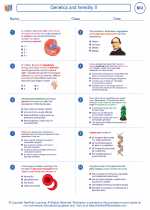 Genetics and heredity II
Genetics and heredity II  Worksheet/Answer key
Worksheet/Answer key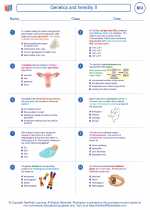 Genetics and heredity II
Genetics and heredity II  Worksheet/Answer key
Worksheet/Answer key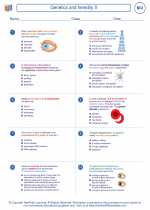 Genetics and heredity II
Genetics and heredity II  Vocabulary/Answer key
Vocabulary/Answer key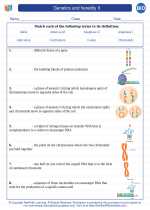 Genetics and heredity II
Genetics and heredity II  Vocabulary/Answer key
Vocabulary/Answer key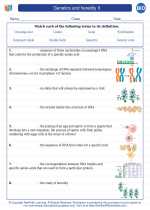 Genetics and heredity II
Genetics and heredity II  Vocabulary/Answer key
Vocabulary/Answer key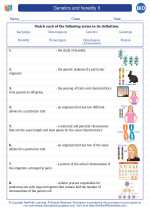 Genetics and heredity II
Genetics and heredity II  Vocabulary/Answer key
Vocabulary/Answer key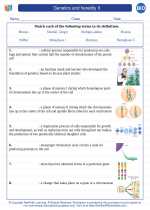 Genetics and heredity II
Genetics and heredity II  Vocabulary/Answer key
Vocabulary/Answer key Genetics and heredity II
Genetics and heredity II  Vocabulary/Answer key
Vocabulary/Answer key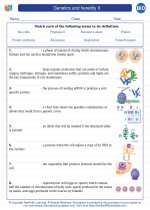 Genetics and heredity II
Genetics and heredity II  Vocabulary/Answer key
Vocabulary/Answer key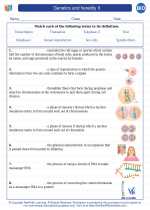 Genetics and heredity II
Genetics and heredity II 

 Worksheet/Answer key
Worksheet/Answer key
 Worksheet/Answer key
Worksheet/Answer key
 Vocabulary/Answer key
Vocabulary/Answer key
 Vocabulary/Answer key
Vocabulary/Answer key
 Vocabulary/Answer key
Vocabulary/Answer key
 Vocabulary/Answer key
Vocabulary/Answer key
 Vocabulary/Answer key
Vocabulary/Answer key
 Vocabulary/Answer key
Vocabulary/Answer key
 Vocabulary/Answer key
Vocabulary/Answer key

The resources above cover the following skills:
LIFE SCIENCE (NGSS)
Heredity: Inheritance and Variation of Traits
Students who demonstrate understanding can:
Ask questions to clarify relationships about the role of DNA and chromosomes in coding the instructions for characteristic traits passed from parents to offspring.